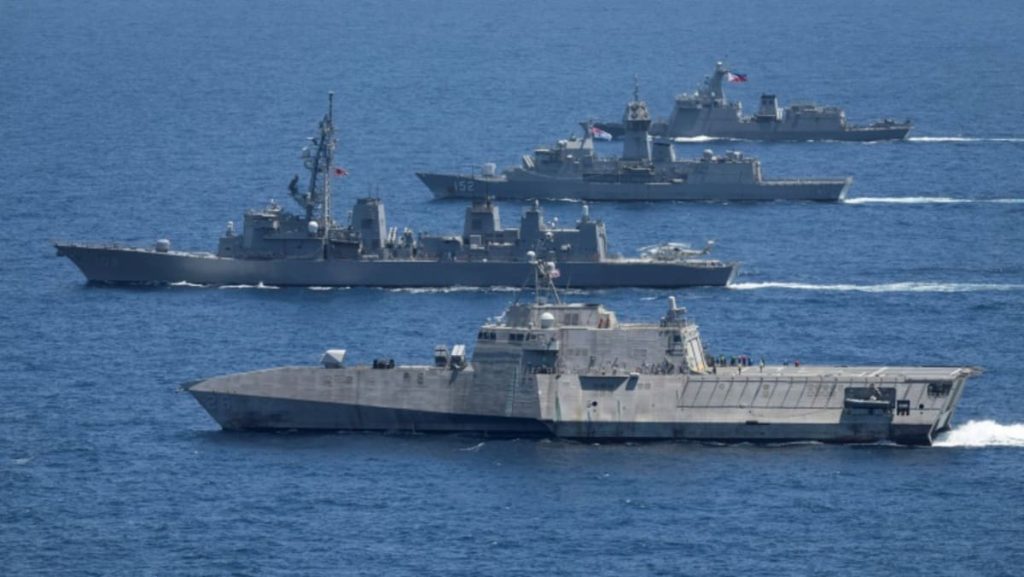The United States, Australia, the Philippines, and Japan conducted joint patrols in the South China Sea following increased Chinese pressure on the Philippines in the disputed region. US National Security Advisor Jake Sullivan stated that more joint patrols can be expected in the future, with the US hosting summits this week with Japanese and Philippine leaders to discuss ways to push back against China. President Joe Biden will meet with Japanese Prime Minister Fumio Kishida to explore potential Japanese involvement in the AUKUS security pact and announce measures to enhance defense and security cooperation, including in space exploration.
Sullivan highlighted plans for a new Japanese Self Defense Forces headquarters overseeing all military operations by 2025, with the US committed to upgrading its operational command to match Japan’s. There are discussions about appointing a four-star commander in Japan to align with the head of Japan’s new military headquarters, potentially laying the groundwork for a unified Japanese-US command in the future. The goal is to enhance operational cooperation between the two countries to address common security challenges in the Indo-Pacific region effectively.
The joint naval patrols and increased security cooperation are responses to Chinese assertiveness in the South China Sea, where Beijing has been expanding its presence and influence. The US, Australia, Japan, and the Philippines are working together to ensure freedom of navigation and stability in the region, pushing back against Chinese efforts to control strategic waterways. The involvement of additional partners such as Japan in the AUKUS security pact demonstrates a growing coalition of countries committed to upholding international norms and rules-based order in the Indo-Pacific.
The Biden-Kishida summit will address ways to further enhance defense and security cooperation, including exploring opportunities for Japanese participation in joint military exercises and capacity-building efforts. The US is committed to supporting Japan’s efforts to strengthen its military capabilities and operational command structure, aligning with Japan’s goal to enhance its defense capabilities in response to evolving security challenges in the region. By coordinating closely with Japan and other allies, the US aims to enhance deterrence and readiness against potential threats in the Indo-Pacific region, including from China’s growing military presence and assertive behavior.
The partnership between the US, Japan, Australia, and the Philippines reflects a shared commitment to upholding maritime security and ensuring a rules-based order in the South China Sea. The joint naval patrols demonstrate solidarity among like-minded countries in pushing back against Chinese aggression and promoting regional stability. By expanding security cooperation and coordination, the US and its allies are signaling a united front against efforts to undermine international norms and challenge the existing security architecture in the Indo-Pacific. As the security landscape continues to evolve, the US remains committed to strengthening alliances and partnerships to address shared security challenges and maintain stability in the region.















